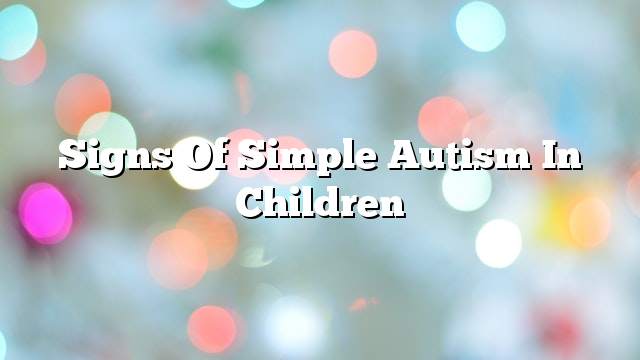Autism
Autism is one of the most common diseases of our time among children. It is a group of mental and mental disorders that affect the child and is reflected in his behavior. This condition is aggravated at the age of three, and this disease has great effects on his life and social skills, and the ability to communicate with Others are talking to them. Their behavior becomes strange and extreme from other peers. It is more common among males than females. One child affects eighty-eight children. The cause of the disease may be due to genetic causes or environmental factors. Alama Autism and tips on how to deal with a child with autism.
Signs of autism in children
- He can not respond to the movements and orders of the parents, or to those who call him by his name, and has a defect in the perception, so he does not resort to the request of the help of his parents.
- Do not prefer playing with others, but always prefer to stay alone.
- He can not repeat the words spoken in front of him, even if he repeated more than once, and can not easily form sentences.
- He refuses to be touched or included by anyone.
- He often takes things seriously and has no sense of humor or irony.
- He spends long periods arranging games.
- Often suffer from some digestive diseases such as constipation, and suffers from lack of sleep.
- Repeats strange movements such as swinging hands and rotation, and can not steadfast for a long time on one thing, we find constant movement, and his movements are random and unorganized.
- Can not communicate with others easily, and uses a strange accent in conversation.
- Be very sensitive to the direction of light and sound.
- You can not be conscious of others’ feelings and feelings.
- More aggressive than other children, and often suffer episodes of extreme anger.
- His feeling and response to pain are relatively few.
- Slow learning, or may have a sharp level of intelligence, depending on the nature of the child.
- He can not follow things visually.
Tips for dealing with an autistic child
- Providing psychosocial support to the child, so that we can develop his self-confidence beyond this stage.
- To monitor the child continuously without notice to him; to observe any new developments in his condition.
- Be careful not to deal violently with him and shout at him and minimize it.
- Train him to play in groups and mix with other children, to eliminate his loneliness.
- Note: A child psychologist should be consulted when feeling that the symptoms are obvious to the child; to diagnose the condition and determine the appropriate treatment for the child.
